Rituals and Rites: A Journey Through African Religious Practices
Africa, a continent rich in cultural diversity, is home to a myriad of religious practices that have been shaped by its complex history, geography, and social dynamics. At the heart of many African religions are rituals and rites, which serve as vital expressions of spiritual beliefs, cultural identity, and communal values. This post embarks on a journey through various African religious practices, exploring the significance of rituals and rites, their diverse forms, and their enduring relevance in contemporary society.
Understanding Rituals and Rites
Defining Rituals and Rites
Rituals are structured and repeated actions often performed in a specific context to achieve a particular purpose. They can be religious, cultural, or social in nature and often involve symbolic gestures, words, and materials. Rites, on the other hand, refer specifically to ceremonial practices that mark significant life events or transitions, such as birth, marriage, and death.
The Importance of Rituals and Rites
Rituals and rites play several crucial roles in African religious practices:
- Connection to the Divine: They serve as a means of communication between the physical and spiritual realms, allowing practitioners to connect with deities, ancestors, and spiritual forces.
- Cultural Identity: Rituals reinforce cultural identity, serving as expressions of shared beliefs and values within communities.
- Social Cohesion: They foster a sense of belonging and community, bringing people together in shared experiences and collective memory.
- Personal Transformation: Rites of passage mark significant transitions in life, facilitating personal growth and transformation.
Key Categories of African Rituals and Rites
African rituals and rites can be categorized into several key areas, reflecting the diversity of beliefs and practices across the continent:
Rites of Passage
Rites of passage are ceremonies that mark an individual’s transition from one stage of life to another. These rites are prevalent across various cultures and serve to recognize and celebrate important milestones.
Birth and Naming Ceremonies
The arrival of a new life is celebrated through elaborate birth and naming ceremonies. These rituals often involve family gatherings, prayers, and offerings to ancestors, symbolizing the child’s introduction into the community.
- Cultural Variations: In some cultures, the naming ceremony occurs days after birth, while in others, it may take weeks. Specific names may carry deep meanings, often reflecting the circumstances of the birth or the family’s lineage.
Initiation Ceremonies
Initiation into adulthood is a significant rite of passage in many African societies. These ceremonies often involve physical tests, teachings, and rituals that prepare young individuals for their new roles and responsibilities.
- Examples: Among the Xhosa people in South Africa, initiation involves a period of seclusion and instruction in traditional knowledge. The Maasai of East Africa also have elaborate initiation rituals that signify the transition from childhood to adulthood.
Marriage Rites
Marriage is celebrated through various rituals and ceremonies that differ across cultures. These rites symbolize the union of families and the commitment of partners.
- Dowry and Bride Price: In many cultures, the giving of a dowry or bride price is an essential part of marriage rites, representing respect and the joining of families.
- Ceremonial Celebrations: Weddings often involve multiple days of celebration, including traditional dances, feasts, and rituals that invoke blessings from ancestors and deities.
Funeral Rites
Death is marked by significant rituals that honor the deceased and facilitate their journey to the ancestral realm. Funeral rites vary widely but generally involve mourning practices, communal gatherings, and offerings.
- Cultural Expressions: In some cultures, elaborate funerals are held to celebrate the life of the deceased, while others may focus on somber reflection. Rituals often include the performance of songs, dances, and the sharing of stories about the deceased.
Healing Rituals
Healing rituals are integral to African spiritual practices, addressing not only physical ailments but also emotional and spiritual imbalances. Traditional healers, often regarded as custodians of ancestral knowledge, play a key role in these rituals.
Herbal Remedies
Many healing rituals incorporate the use of medicinal plants and herbs, reflecting a deep understanding of local flora. Traditional healers prepare remedies for various ailments, often using a combination of spiritual and herbal treatments.
- Healing Practices: Rituals may include the invocation of spirits, chanting, and the use of sacred objects to enhance the healing process.
Divination
Divination practices are often employed to understand the root causes of illness or misfortune. Diviners use various methods, such as casting bones or interpreting symbols, to communicate with the spiritual realm.
- Guidance and Insight: The insights gained from divination inform both healing practices and daily life decisions, helping individuals navigate challenges and seek guidance from ancestors.
Agricultural and Harvest Rituals
Agriculture plays a vital role in the livelihoods of many African communities, and rituals associated with planting and harvesting are essential for ensuring a successful yield.
Planting Rituals
Before planting, communities often engage in rituals to invoke blessings from the earth and the spirits. These rituals may include offerings, prayers, and communal gatherings to celebrate the start of the planting season.
- Cultural Significance: In some cultures, specific days or lunar phases are considered auspicious for planting, and rituals align with these beliefs.
Harvest Festivals
Harvest festivals celebrate the culmination of agricultural efforts, expressing gratitude for the bounty of the land. These festivals often involve feasting, music, dance, and communal gatherings.
- Rituals of Thanks: Offerings are made to deities and ancestors in gratitude for a successful harvest, reinforcing the connection between the community and the spiritual realm.
Spiritual and Communal Rituals
Beyond individual rites, many African cultures engage in communal rituals that reinforce social cohesion and cultural identity.
Festivals and Celebrations
Cultural festivals often feature a blend of religious and social elements, celebrating the community’s identity and heritage. These events bring people together in a spirit of joy and unity.
- Cultural Expressions: Festivals may include traditional music, dance, art, and storytelling, reflecting the community’s values and beliefs.
Rituals of Protection
Communities often engage in rituals to seek protection from negative influences, such as illness, misfortune, or external threats. These rituals may involve the use of amulets, prayers, and communal blessings.
- Spiritual Guardianship: Ancestral spirits and deities are invoked for protection, reinforcing the belief in their ongoing presence and influence in daily life.
The Role of Music and Dance in Rituals
Music and dance are integral components of many African rituals, serving as expressions of spirituality, culture, and community identity.
Spiritual Connection
Rhythm and melody facilitate a connection to the spiritual realm, enhancing the atmosphere of rituals. Music is often used to invoke spirits, create a sense of sacredness, and enhance the overall experience of worship.
Communal Participation
Dance encourages communal participation and strengthens social bonds. Group dances often symbolize unity and collective identity, allowing individuals to express their emotions and connect with one another.
Storytelling
Through music and dance, stories of ancestors, cultural heritage, and community values are transmitted from one generation to another. This oral tradition reinforces cultural continuity and preserves collective memory.
Challenges to Traditional Rituals
While rituals and rites continue to play a significant role in African societies, they face various challenges in the modern world.
Urbanization and Globalization
Rapid urbanization and globalization have led to changes in lifestyles and cultural practices. Many young people move to urban areas, where traditional rituals may be less accessible or relevant.
- Cultural Erosion: The influx of Western values and practices can lead to a dilution of traditional beliefs, prompting some communities to grapple with cultural identity.
Religious Pluralism
The spread of global religions, such as Christianity and Islam, has introduced new beliefs and practices, sometimes leading to tensions between traditional and modern religious expressions.
- Syncretism: In many cases, communities adopt a syncretic approach, blending traditional beliefs with new religious practices, creating unique forms of spirituality.
Environmental Changes
Environmental changes, such as climate change and deforestation, pose challenges to agricultural rituals and practices that rely on natural cycles. Communities may need to adapt their rituals to align with changing conditions.
Revitalizing and Preserving Rituals
Despite the challenges, many communities are actively working to revitalize and preserve their rituals and rites, recognizing their importance for cultural identity and social cohesion.
Cultural Education
Efforts to educate younger generations about traditional rituals are vital for preserving cultural heritage. Community programs and workshops can foster understanding and appreciation for ancestral practices.
Intergenerational Dialogue
Encouraging dialogue between elders and youth can strengthen connections to cultural traditions. Elders share their knowledge and experiences, while youth bring fresh perspectives and ideas.
Documentation and Research
Documentation of traditional rituals through research, photography, and storytelling can help preserve cultural practices for future generations. This effort allows communities to celebrate their heritage while adapting to modern realities.
Conclusion
Rituals and rites are at the heart of African religious practices, serving as powerful expressions of spirituality, cultural identity, and community values. Through rites of passage, healing rituals, agricultural ceremonies, and communal celebrations, individuals and communities connect with their ancestors, the divine, and each other.
As Africa navigates the complexities of modernity, the wisdom embedded in these rituals remains relevant. They offer insights into ethical living, communal responsibility, and the importance of honoring one’s heritage. The journey through African religious practices is not just a reflection of the past; it is a vibrant and living expression of cultural resilience, adaptation, and hope for the future. Embracing these rituals allows individuals and communities to navigate the challenges
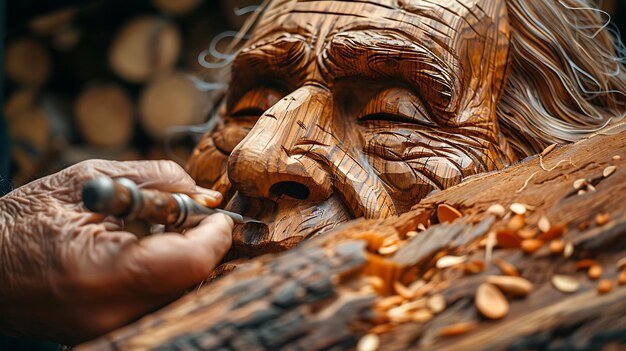
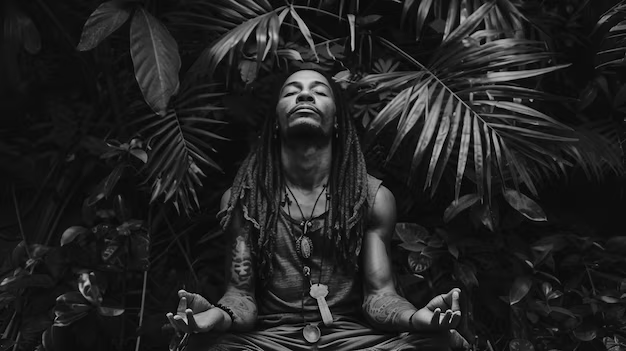
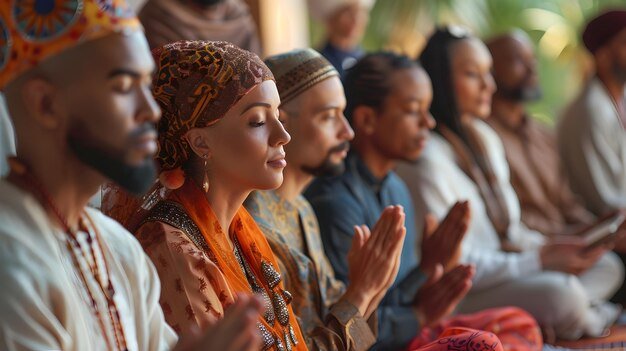
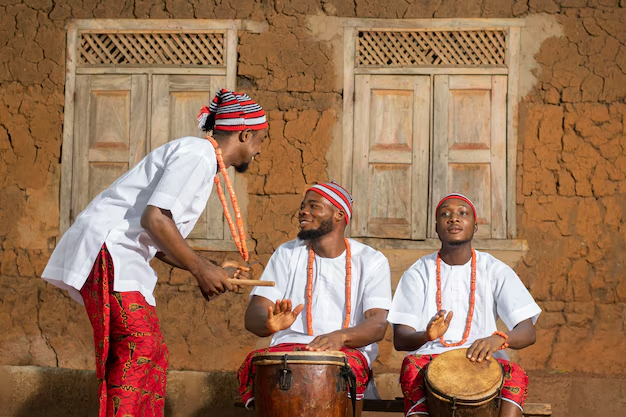

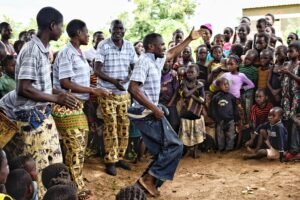

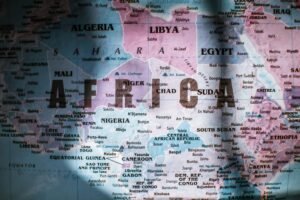
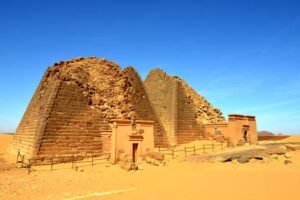
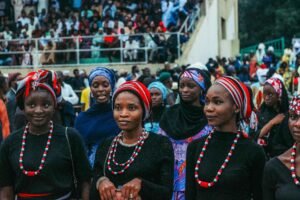

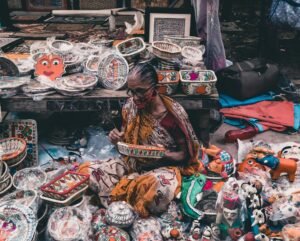


Publicar comentário